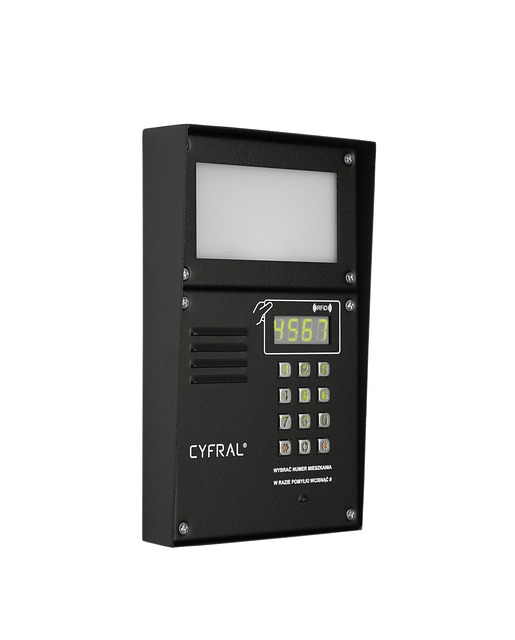Background and credit checks are vital for rental approval, offering landlords a comprehensive view of tenant financial health, rental history, and responsibility. These checks impact decision-making, simplify processes, and foster trust between tenants and landlords. Positive outcomes enhance chances of approval, while adverse results may lead to rejection or delinquencies. Comprehensive screening transforms the rental landscape by promoting efficient, secure, and reliable renting experiences for both parties.
Background checks are an integral part of the rental approval process, playing a pivotal role in ensuring landlords make informed decisions. This article delves into the intricate details of how these checks, including credit and income verifications, influence your chances of securing a rental. We explore the significance of comprehensive assessments in building trust between tenants and landlords, ultimately clarifying the impact of check outcomes on every step of the renting journey.
- Understanding Rental Background Checks
- The Role of Credit Checks in Approval
- Verifying Income: A Key Step
- Impacts of Check Outcomes on Decisions
- Enhancing Trust through Comprehensive Checks
Understanding Rental Background Checks

Background checks play a pivotal role in the rental approval process, providing crucial insights into a prospective tenant’s financial stability and rental history. These checks, often conducted by landlords or property managers, involve verifying key information such as income, employment details, and previous rental records. The impact of these verifications is significant; they help landlords make informed decisions, ensuring they select reliable tenants who can meet their rental obligations.
By assessing the rental background, landlords gain a clearer understanding of an applicant’s creditworthiness and responsible renting behavior. Positive check outcomes indicate a history of timely rent payments, maintaining the property, and adhering to lease agreements. Conversely, negative results may reveal payment delinquencies, evictions, or damaged rental references, prompting landlords to consider the risk associated with renting to that individual. Thus, the process acts as a filter, facilitating responsible leasing practices and ultimately enhancing the overall rental experience for both parties.
The Role of Credit Checks in Approval

Credit checks play a pivotal role in the rental approval process, acting as a crucial indicator of an applicant’s financial responsibility. Landlords and property managers use these checks to assess an individual’s creditworthiness, gauging their ability to meet the financial obligations associated with renting a property. A strong credit score typically signifies timely rent payments, responsible management of debts, and overall fiscal stability, all of which are attractive qualities for potential landlords.
The impact of checks on renting is significant, as they help streamline the approval process by providing a quick and objective measure of a tenant’s financial health. This efficiency allows landlords to make informed decisions more swiftly, benefiting both parties involved. However, it’s essential to remember that these checks are just one aspect of a comprehensive screening process, often accompanied by background checks, reference verifications, and income documentation to ensure a thorough evaluation of each applicant.
Verifying Income: A Key Step

Verifying income is a crucial step in the rental approval process, and it’s where credit checks play a significant role. Landlords often require prospective tenants to provide proof of stable and adequate income to ensure they can afford the rent. This process involves checking employment records, pay stubs, or tax returns to confirm the applicant’s financial status. By verifying income, landlords can make informed decisions about who will be a reliable tenant, thus reducing the risk of late payments or default.
In today’s digital era, this verification has become more efficient with online tools and software that streamline the process. However, it remains an essential step in the rental approval journey, impacting the overall experience for both landlords and tenants. Understanding how income checks work is key to navigating the complexities of the rental market and securing your dream space.
Impacts of Check Outcomes on Decisions

The outcome of credit and background checks plays a pivotal role in rental approvals, significantly influencing landlords’ decisions. A prospective tenant’s financial health, as revealed through these checks, offers valuable insights into their ability to fulfill rental obligations. Positive check results, indicating good credit standing and reliable repayment history, enhance a renter’s chances of approval. Landlords often view this as a sign of responsible behavior, assuring them of timely rent payments and reduced risk of default.
Conversely, adverse check outcomes can pose challenges for renters. High debt levels, late payments, or poor credit scores may raise concerns among landlords, potentially leading to rejection. These results signal financial instability, increasing the likelihood of rental delinquencies and evictions. Thus, understanding the impact of checks on renting is essential for both tenants and landlords, as it sets the stage for successful tenant-landlord relationships built on mutual trust and financial reliability.
Enhancing Trust through Comprehensive Checks

Comprehensive checks play a pivotal role in enhancing trust and streamlining the rental approval process. By meticulously evaluating prospective tenants, landlords can gain valuable insights into their financial stability, rental history, and overall reliability. This proactive approach ensures that properties are leased to responsible individuals who are likely to uphold their end of the bargain.
The impact of checks on renting is profound; it creates a win-win scenario where tenants enjoy peace of mind knowing they’re making a sound investment, while landlords benefit from reduced risk and hassle. A thorough check process can prevent potential issues like late rent payments, property damage, or even legal disputes down the line. As such, embracing comprehensive checks is not just a practical measure but also a responsible step towards fostering a trustworthy rental environment.
